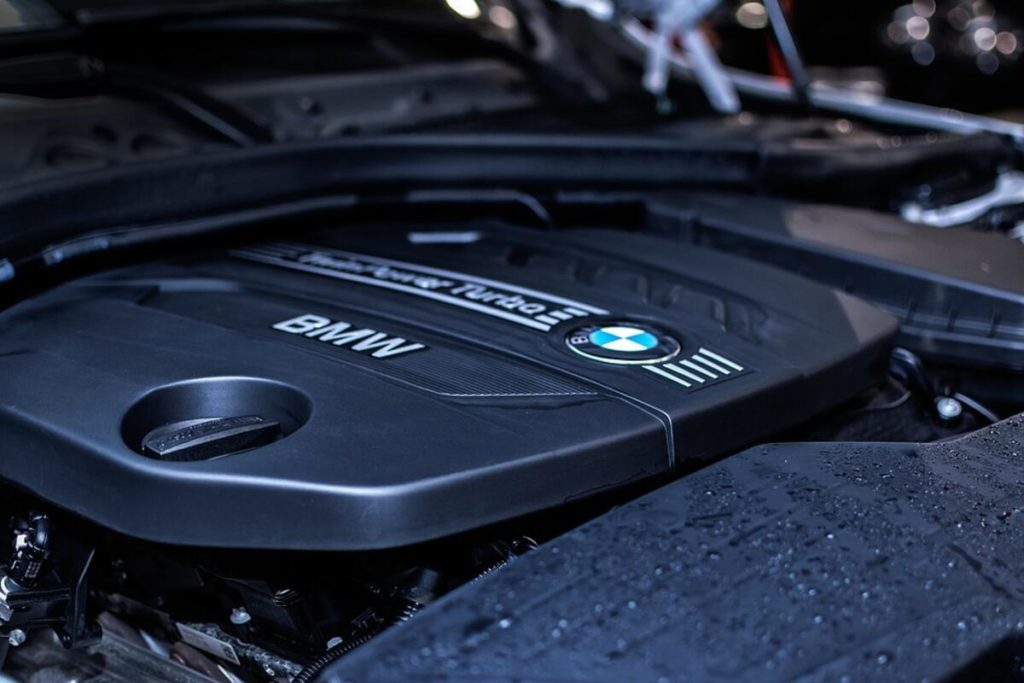The BMW B58 engine has been around for a few years now and has proven to be a reliable and powerful engine. However, there are some engine specs and problems you need to know about before buying or owning one. In this guide, we'll go over everything you need to know about the B58 engine so you can make an informed decision. We'll talk about performance, reliability, and common problems so you can decide if this engine is right for you. So, whether you're considering purchasing a BMW with a B58 engine or just want to learn more about it, read on!
History of the BMW B58 Engine
The BMW B58 engine is a 3.0-liter turbocharged straight-six cylinder petrol engine, first entering production in 2015 for the F30 340i. It is part of the new modular BMW engine family - the B series - which includes three, four and six-cylinder variants. The B58 replaced the N55 which had been in production since 2009 and had problems such as valve cover gasket, coolant temp, fuel pump, and oil filter housing.
Since its introduction, the B58 has been used in a variety of BMW models, including the X4M40i and Z4M40i.
It has also seen upgrades over the years with various different variants being released. The most powerful version to date is the S58 engine, found in the BMW M3 and M4.
Most recently, BMW has started using the B58 in the new Toyota Supra. The BMW's engine is tuned to produce 335hp and 500 Nm of torque, giving great performance while retaining fuel efficiency.
It provides a perfect balance between power and practicality for drivers who don't need the full blown performance of the S58 with twin turbos.
The BMW B58 engine is an impressive example of modern engineering, offering great factory performance and efficiency across a range of different vehicles. With its use in the new Supra, the engine's popularity is sure to continue for years to come.
BMW B58 Engine Specs
- Displacement: 3.0 L (2,998 cc)
- Stroke: 94.6mm
- Bore: 82mm
- Horsepower: 322-382 HP
- Torque: 332–369 lb⋅ft
- Compression Ratio: 11.0 : 1
BMW B58 Engine Mods & Tuning
When it comes to BMW B58 engine mods and tuning, there are a few parts that can be upgraded or replaced to improve performance.
Exhaust and intake:
Upgrading your exhaust and intake can not only reduce backpressure, but also increase horsepower by improving the flow of air into the engine.
Cold air intakes are a popular upgrade as they provide cooler, denser air to the engine for improved combustion.
Bigger turbo:
One of the most popular modifications for the BMW B58 engine is installing a bigger turbo. This will increase airflow, resulting in improved power and torque output.
It’s important to do your research and choose the right turbo size for your needs as too small a turbo can lead to poor performance while too big can cause lag or even damage the engine.
ECU tuning:
Using ECU tuning software to reprogram the engine’s electronic control unit (ECU) is another popular performance upgrade for BMW B58 engines.
This allows you to adjust settings such as ignition timing, fuel mapping and boost pressure to optimize performance.
It can also be used to remove the speed limiter, allowing your car to reach higher speeds.
ECU tuning should be done by experienced professionals to ensure the best results and to prevent any damage from occurring.
Downpipe:
Installing a downpipe is another popular mod for the BMW B58 engine as it improves exhaust flow, allowing more power to be generated.
Downpipes also reduce backpressure from the turbo and can make your turbo engines sound louder and more aggressive.
Injectors:
Upgrading your fuel injectors to larger-capacity ones can improve the amount of fuel that can be injected into the engine, resulting in improved performance.
It’s important to ensure that the injectors you choose are compatible with your engine block and that they provide a good flow rate without any blockages or issues.
Camshaft upgrade:
Finally, upgrading your camshaft can also provide a boost in performance.
Camshafts control the opening and closing of the intake and exhaust valves and by installing a higher-performance camshaft you can increase the amount of air that enters the engine.
This will result in improved power output from your B58 engine.
Overall, there are a variety of modifications and tuning options available for the BMW B58 and other BMW engines that can improve performance, power and torque output.
It’s important to do your research and speak to experienced professionals before attempting any modifications or tuning as this will help to ensure the best results and avoid any potential damage.
Common Problems of the BMW B58 Engine
The BMW B58 engine is a powerful and reliable engine with many features that make it attractive to drivers.
However, as with any vehicle component, there are some common issues that can arise due to everyday engine wear and tear or other factors.
Here are some of the most common problems associated with the BMW B58 engine:
1.Cooling system:
A key component of any engine bay, the cooling system can fail in a B58 engine due to lack of regular maintenance or buildup of debris.
This can lead to overheating and potential damage to other parts.
2. Vanos system failure:
The Variable Camshaft Timing (Vanos) system is responsible for changing the timing of the camshaft according to driving conditions.
If this system fails, the engine will not be able to run properly and can cause stalling or poor performance.
It happens due to a lack of regular maintenance or a defect in the Vanos system itself.
3. Pcv valve:
The Positive Crankcase Ventilation (PCV) valve is a key part of the engine’s emissions system, and failure can cause a variety of issues for drivers.
This includes problems with acceleration, rough idle, and poor fuel economy.
Fortunately, most of these problems can be easily fixed or prevented with regular maintenance and servicing. It’s important to get your modern turbo BMW engines checked regularly so that any potential issues can be identified and repaired before they become more serious.
It also helps to use quality parts and fluids when making repairs or modifications, as these will ensure the best performance from your engine.
Cars With The BMW B58 Engine:

The BMW B58 engine is featured in a wide variety of vehicles from the BMW range and other manufacturers.
Here are some of the most popular cars with different B58 engines:
B58B30M0: (322 HP)
BMW F31, BMW F30, BMW F34 (2015-2019)
BMW F33, BMW F32, BMW F36 (2016-2019)
BMW G12, BMW G11 (2016-2019)
B58B30M0: (335 HP)
BMW F21, BMW F20 (2016-2019)
BMW F23, BMW F22 (2016-2021)
B58B30M0: (335 HP)
BMW G31, BMW G30 (2017-2019)
BMW G32 640I (2017-2019)
B58B30M0: (355 HP)
BMW F31, BMW F30, BMW F34 (2016-2019)
BMW F33, BMW F32, BMW F36 (2016-2019)
BMW X3 (2017-2019)
BMW X4 (2018-2019)
B58B30M1: (335 HP)
G05 BMW X5 (2018-present)
BMW G32 (2020-present)
BMW X6 (2020-present)
Morgan Plus Six (2020)
BMW G11, G12 (2020-present)
BMW X7 (2018-present)
BMW Z4 (2019-present)
BMW G30, G31 (2020-present)
BMW G14, BMW G15, BMW G16 (2019-present)
B58B30C: (335 HP)
Toyota Supra (2020)
B58B30O1: 285 kW (382 HP)
BMW Z4 (2018-present)
BMW G20, G21 (2019-present)
BMW X3 (2020-present)
BMW X4 (2019-present)
BMW G22 (2020-present)
BMW G42 (2021-present)
Toyota Supra (2021-present)
BMW B58 Engine: The Bottom Line
The B58 is an incredibly powerful engine that has tons of potential. However, there are some issues that you should be aware of before you buy a BMW with this engine. We hope that this guide has helped you learn more about the B58 and what to expect from it. If you have any further questions, feel free to contact us or leave a comment below.
Frequently Asked Questions
Why is the B58 engine so good?
BMW's B58 engine is renowned for its power, performance and efficiency. It has been used since 2016 in the BMW 3 Series, 5 Series, 7 Series and X3 models, as well as the Mini Cooper S and Countryman S.
The B58 engine features a single turbocharger with direct fuel injection technology that reduces emissions while maximizing power output. It has a lightweight construction and is highly reliable, making it an ideal choice for performance vehicles.
The B58 engine is also fuel efficient and can help reduce greenhouse gas emissions by up to 15 percent. Additionally, the B58 engine boasts excellent acceleration with its smooth power delivery and strong torque curve that provides good mid-range punch. All of these features make the B58 engine one of the best and most reliable engines available on the market today.
Does the Supra have a BMW engine?
The answer is yes! The B58 engine, which is a 3.0-liter turbocharged inline-six, was introduced in the 2016 Toyota Supra. This engine produces 335 hp and 365 lb-ft of torque when equipped with a factory tune, making it one of the most powerful engines available in this model.
Additionally, the B58 engine is also used in the BMW X3, 5 Series and 7 Series. This makes it a great choice for those looking to get an engine with excellent performance and reliability. So if you're looking for a powerful engine in your Supra, the B58 is definitely worth considering!
Which is better, N55 or B58?
This is a difficult question to answer, as each engine has its own advantages and disadvantages. The BMW N55 is known for its excellent performance and longevity; however, it does have some drawbacks such as higher fuel consumption and less power than the B58.
On the other hand, the B58 offers better fuel economy and more power than the N55 but may be more prone to issues due to its complexity.
Ultimately, it comes down to personal preference and what you want from your vehicle. If you are looking for sheer power and performance, the N55 is probably the better choice; however, if fuel economy and reliability are your main concerns, then the B58 might be the better option.

